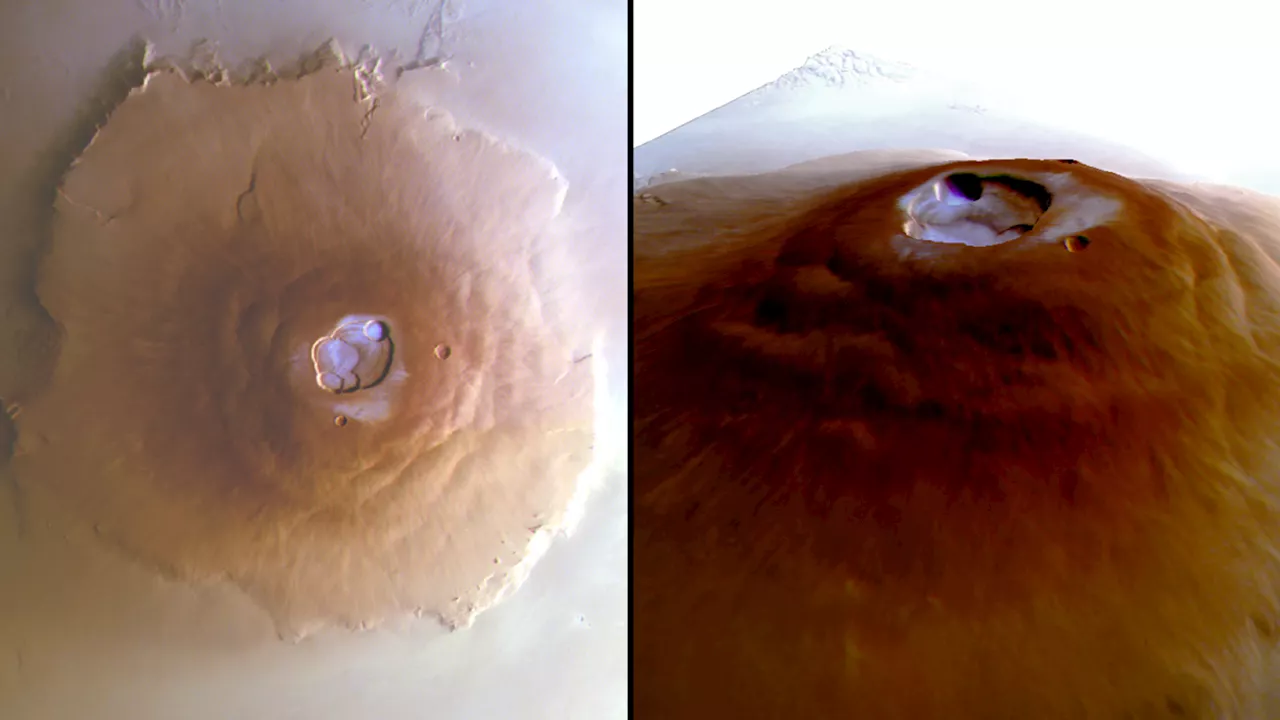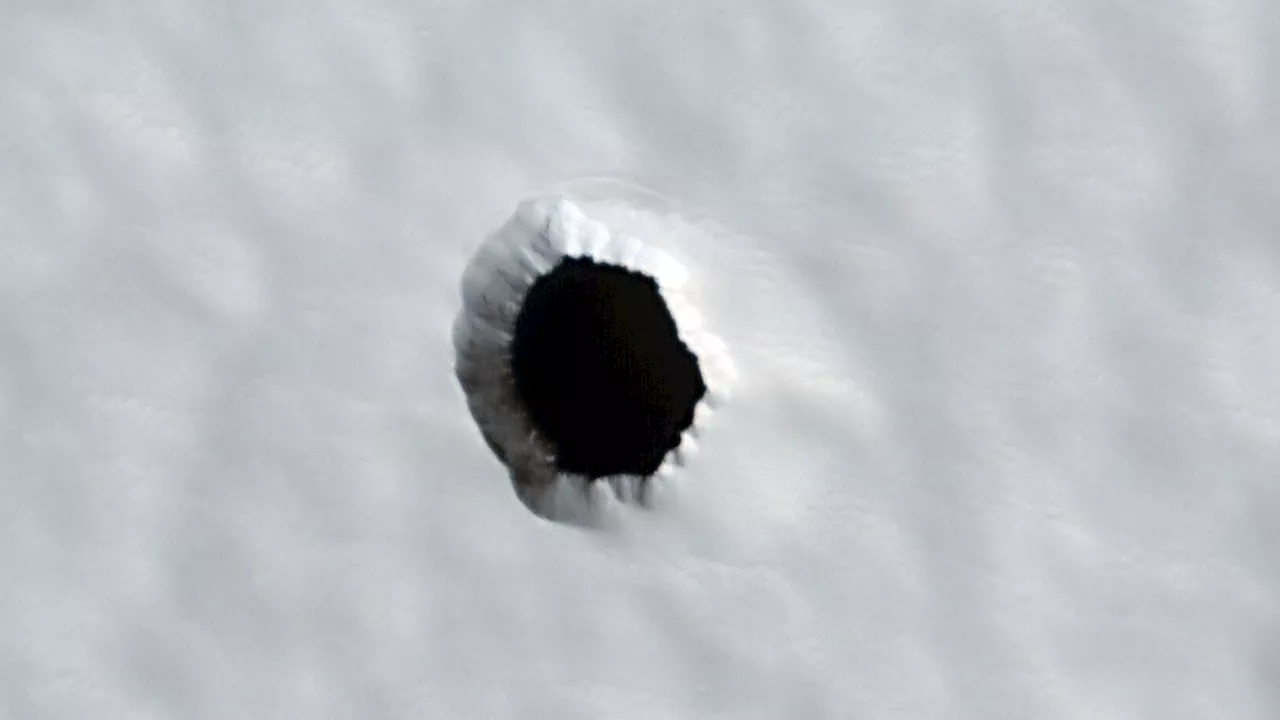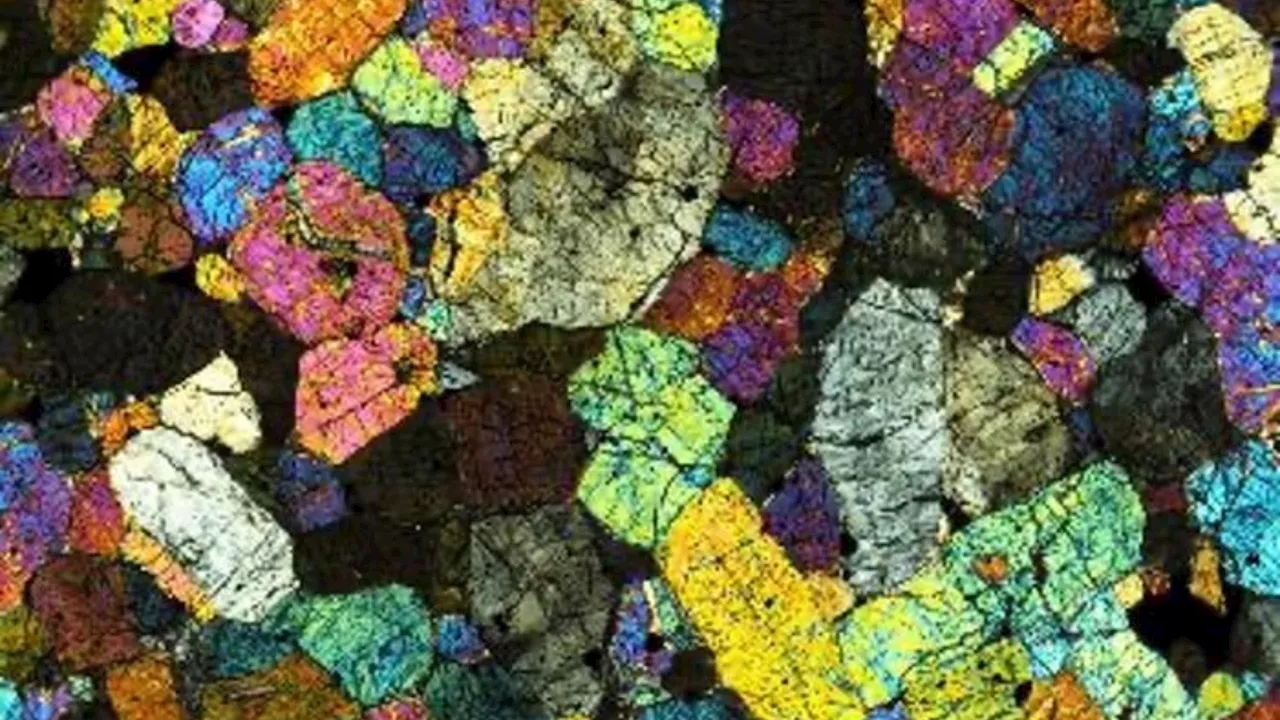In addition to producing auroras, a recent extreme storm provided more detail on how much radiation future astronauts could encounter on the Red Planet.
NASA watches Mars light up during epic solar storm retrieved 10 June 2024 from https://phys.org/news/2024-06-nasa-mars-epic-solar-storm.html
This document is subject to copyright. Apart from any fair dealing for the purpose of private study or research, no part may be reproduced without the written permission. The content is provided for information purposes only.Use this form if you have come across a typo, inaccuracy or would like to send an edit request for the content on this page. For general inquiries, please use ourThank you for taking time to provide your feedback to the editors.
Your feedback is important to us. However, we do not guarantee individual replies due to the high volume of messages.to let the recipient know who sent the email. Neither your address nor the recipient's address will be used for any other purpose. The information you enter will appear in your e-mail message and is not retained by Phys.org in any form.Get weekly and/or daily updates delivered to your inbox.
Physics News Science News Technology News Physics Materials Nanotech Technology Science
United States Latest News, United States Headlines
Similar News:You can also read news stories similar to this one that we have collected from other news sources.
 'We thought it was impossible:' Water frost on Mars discovered near Red Planet's equatorRobert Lea is a science journalist in the U.K. whose articles have been published in Physics World, New Scientist, Astronomy Magazine, All About Space, Newsweek and ZME Science. He also writes about science communication for Elsevier and the European Journal of Physics. Rob holds a bachelor of science degree in physics and astronomy from the U.K.
'We thought it was impossible:' Water frost on Mars discovered near Red Planet's equatorRobert Lea is a science journalist in the U.K. whose articles have been published in Physics World, New Scientist, Astronomy Magazine, All About Space, Newsweek and ZME Science. He also writes about science communication for Elsevier and the European Journal of Physics. Rob holds a bachelor of science degree in physics and astronomy from the U.K.
Read more »
 The 'hole' on Mars making headlines could be crucial to Red Planet explorationKeith Cooper is a freelance science journalist and editor in the United Kingdom, and has a degree in physics and astrophysics from the University of Manchester.
The 'hole' on Mars making headlines could be crucial to Red Planet explorationKeith Cooper is a freelance science journalist and editor in the United Kingdom, and has a degree in physics and astrophysics from the University of Manchester.
Read more »
 1.3-billion-year-old Mars rock reveals surprising layers of Red PlanetThe team constructed their understanding of Mars' interior by analyzing meteorite samples from a specific Martian volcano.
1.3-billion-year-old Mars rock reveals surprising layers of Red PlanetThe team constructed their understanding of Mars' interior by analyzing meteorite samples from a specific Martian volcano.
Read more »
 Mars InSight Has One Last Job: Getting Swallowed by Dust on the Red PlanetThe Mars Reconnaissance Orbiter's HiRISE imaging system captured a look at the dust-covered InSight mission on Mars.
Mars InSight Has One Last Job: Getting Swallowed by Dust on the Red PlanetThe Mars Reconnaissance Orbiter's HiRISE imaging system captured a look at the dust-covered InSight mission on Mars.
Read more »
 A massive, icy Mars crater stares up at a Red Planet orbiter (image)Samantha Mathewson joined Space.com as an intern in the summer of 2016. She received a B.A. in Journalism and Environmental Science at the University of New Haven, in Connecticut. Previously, her work has been published in Nature World News.
A massive, icy Mars crater stares up at a Red Planet orbiter (image)Samantha Mathewson joined Space.com as an intern in the summer of 2016. She received a B.A. in Journalism and Environmental Science at the University of New Haven, in Connecticut. Previously, her work has been published in Nature World News.
Read more »
 Power Rangers’ Most Shocking Hero Death Confirmed The Franchise’s Greatest Red RangerIn Space Red Ranger, Lost Galaxy Red Ranger, and Mighty Morphin Red Ranger
Power Rangers’ Most Shocking Hero Death Confirmed The Franchise’s Greatest Red RangerIn Space Red Ranger, Lost Galaxy Red Ranger, and Mighty Morphin Red Ranger
Read more »
